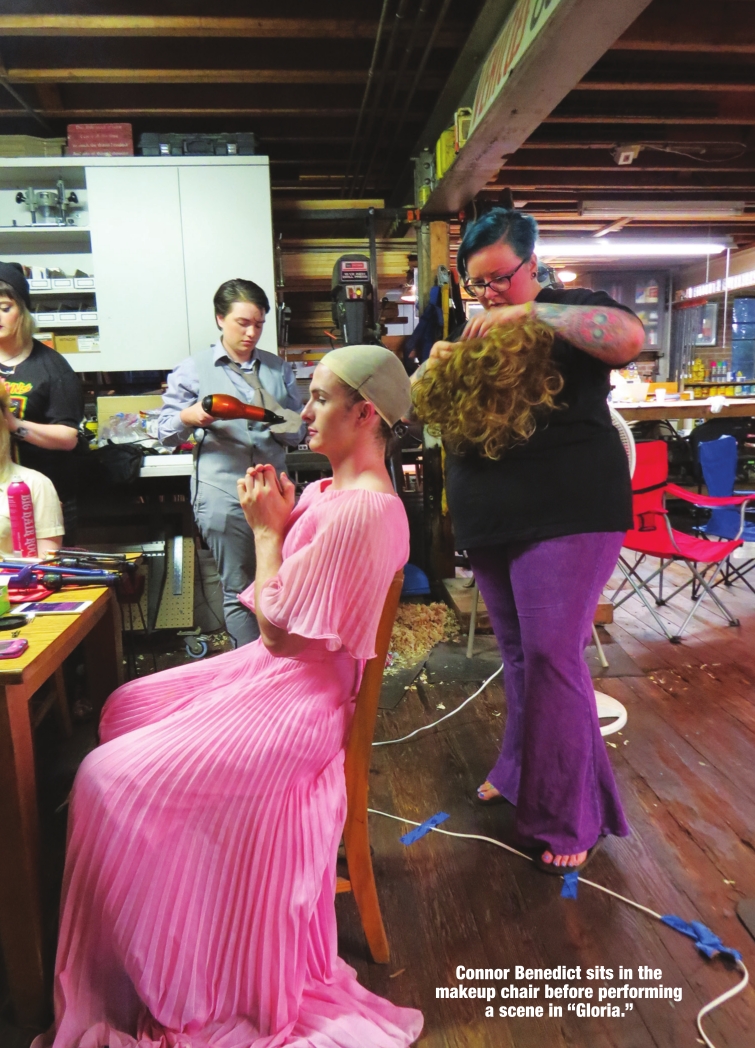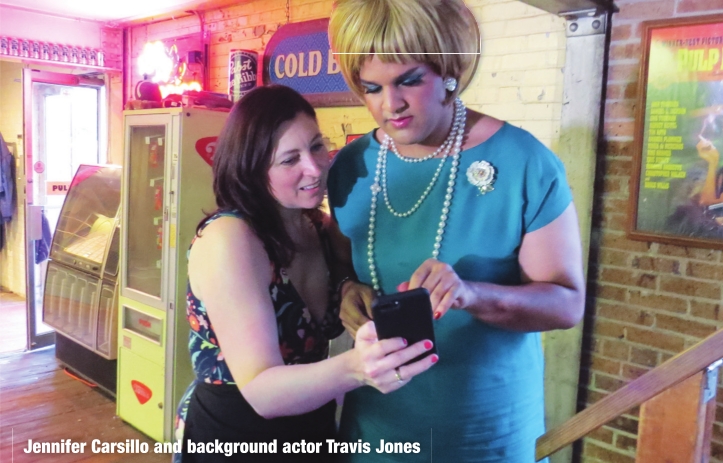Bringing a Story to Life

Community comes together to make woman’s short-film dreams happen
You know the saying, “It takes a village to raise a child.” For Camille Schmoutz, it took a village to make her passion project come to life. Now, this licensed cosmetologist is also the writer, producer and director of a completed short film titled “Gloria.”
Schmoutz began writing the film while meeting weekly at the Cedar Grove branch of the Shreve Memorial Library with Kari Kennon and Jennifer Carsillo, fellow writers, performing artists and Shreveport locals. Kennon encouraged them to work on short scripts as possible projects for this year’s LA Film Prize, and although Schmoutz was intimidated by the challenge of packing a full narrative into a 15-minute story, she took the bait and ended up writing “Gloria.”
“I had never taken on a project of this magnitude before. I wrote, produced and directed ‘Gloria,’ and it consumed my life for months, but in a wonderful way,” she said. “I was even intimidated by the short screenplay form of writing initially because of its structural challenges. How does one fit an entire story, one that resonates emotionally and provokes thought into 15 minutes max?” With a limited amount of funds available, Schmoutz had to pump the brakes on the production process for her short film. Kennon and Carsillo encouraged her to create a hypothetical budget and reach out to a potential crew. Soon enough, people were on board to start up production. Christine Chen of Moth to Flame Films, a LA Film Prize regular, came on as co-director/ producer, and Carsillo agreed to coproduce.
The short film tells the story of a gender-questioning teen from a conservative southern home in 1966 who accepts a secret invitation from a beautiful drag queen and resolves, despite the threat of arrest and familial rejection, to publicly cross-dress for the first time at an underground gay dance party.
This was an important story that Schmoutz felt needed to be told.
“As someone who has rallied against gender binaries all my life, I know how validating and encouraging it can be to see gender-fluid and transgender people in media,” she said. “Representation matters. Transgender and non-binary people are victimized at alarming rates and are at a heightened risk of suicide because of the discrimination and hatred they face on a regular basis; it is of potentially life-saving importance to lift them up and make them feel seen and respected for their humanity.”
During the writing process, Schmoutz found herself connecting with the characters she was creating.
“My characters were inspired by real people I know,” Schmoutz said. “Some are amalgamations of multiple friends or family members, others are more directly based on individuals. As a writer I try to get into the skin of each of my characters as I write them, even the antagonists. I want my characters to be understandable and relatable even if they are making choices the audience members wouldn’t make themselves.”
When it came to the film’s production, Schmoutz had a whole community of people that were willing to help make it happen. The Shreveport Little Theatre and the Shreveport Opera gave them access to their costumes and props for the film’s 1960s art design. For filming locations, the Cotton Boll Grill allowed them to film after hours. Alan Berry of the Centenary College Theatre Department lent his property as well as his vintage cars for filming. Schmoutz feels honored that so many people felt compelled to contribute to her project.
“I’ve never been prouder to be a Shreveport resident,” she said. “When you value independence and selfsufficiency, it can be hard to ask for things. Once I got over the hurdle of asking for what I needed, a hurdle which I had to overcome multiple times during production, Shreveport’s tightknit community of creatives rose to the occasion magnificently.”
Now that the film is in postproduction, Schmoutz can take a breather. She is hopeful that “Gloria” will make it into the Top 20 of the LA Film Prize. Even if it doesn’t, she plans on screening the film locally and sets her sights on submitting it to other film festivals as well. Most of all, she hopes to share the film with the people of the LGBT+ community.
“I hope that people whose gender doesn’t fit neatly into a box feel seen and uplifted by ‘Gloria.’ I hope that people who don’t know anything about gender non-conformity can see the humanity in the people portrayed and get a sense of the hopes, desires and fears we all share regardless of our self-expression.”
– Jessica Carr
Photography by Marcus Mebes


